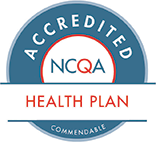FDA adds Boxed Warning to highlight correct dosing of Ocaliva (obeticholic acid) for patients with a rare chronic liver disease
[02-01-2018] The Food and Drug Administration (FDA) is warning that the liver disease medicine Ocaliva (obeticholic acid) has been incorrectly dosed daily instead of weekly in patients with moderate to severe primary biliary cholangitis (PBC), a rare chronic liver disease, increasing the risk of serious liver injury. To ensure correct dosing and reduce the risk of liver problems, we are clarifying the current recommendations for screening, dosing, monitoring, and managing PBC patients with moderate to severe liver disease taking Ocaliva. We are adding a new Boxed Warning, FDA's most prominent warning, to highlight this information in the prescribing information of the drug label. We are also requiring a Medication Guide for patients to inform them about this issue
Ocaliva has been shown to improve a certain blood test that measures liver problems in patients with PBC. It works by increasing bile flow from the liver and suppressing bile acid production in the liver, reducing the exposure of the liver to toxic levels of bile acids. Progressive PBC can lead to liver failure or death. Treatment of PBC with Ocaliva may delay or prevent progression of the disease.
Health care professionals should follow the Ocaliva dosing regimen in the drug label, which is based on calculating a Child-Pugh score in PBC patients with suspected liver cirrhosis before treatment to determine their specific classification and starting dosage (see Table for the Clarified Ocaliva Dosage Regimen and more detailed instructions). Dosing higher than recommended in the drug label can increase the risk for liver decompensation, liver failure, and sometimes death. Routinely monitor all patients for biochemical response, tolerability, and PBC progression, and re-evaluate Child-Pugh classification to determine if dosage adjustment is needed. Close monitoring is recommended for patients at an increased risk of liver decompensation, including those with laboratory evidence of worsening liver function (e.g., total bilirubin, INR, albumin) or progression to cirrhosis.
Educate patients and caregivers on the symptoms of worsening liver function. Temporarily stop Ocaliva in those with laboratory or clinical evidence of worsening liver function that may indicate decompensation and monitor the patient's liver function. If a patient's condition returns to baseline, weigh the potential risks and benefits of restarting Ocaliva. Re-initiate, using the recommended starting dosage based on Child-Pugh classification. Consider discontinuing Ocaliva in patients who have experienced clinically significant liver-related adverse reactions.
Patients should be aware that your prescriber should do regular tests to check how well your liver is working while you are taking Ocaliva. If your liver problems get worse, your dose may need to be changed or stopped. Report new or worsening severe skin itching to your health care professional. Also, contact your prescriber immediately if you develop any of the following symptoms that may be signs of worsening liver problems:
Any of the following specific symptoms
| Any of the following specific symptoms | Any of the following general symptoms if they are severe or do not go away |
|---|---|
|
|
As a condition of approval, FDA required the manufacturer of Ocaliva, Intercept Pharmaceuticals, to continue studying the medicine in patients with advanced PBC. These clinical trials are currently ongoing and FDA expects to receive results in 2023. We are adding the additional warnings to the drug label after receiving reports that Ocaliva is being given to PBC patients with moderate to severe liver impairment more often than is recommended in the prescribing information, resulting in liver decompensation, liver failure, and sometimes death. FDA will continue to monitor this medicine and will update the public if new information becomes available.
We urge health care professionals and patients to report side effects involving Ocaliva and other medicines to the FDA MedWatch program, using the information in the "Contact FDA" box at the bottom of the page.
Ocaliva Dosage Regimen by Patient Population
| Staging / Classification | Non-Cirrhotic or Compensated Child-Pugh Class A | Child-Pugh Class B or C or Patients with a Prior Decompensation Eventa |
|---|---|---|
|
Starting OCALIVA Dosage for first 3 months |
5 mg once daily |
5 mg once weekly |
|
OCALIVA Dosage Titration after first 3 months, for patients who have not achieved an adequate reduction in ALP and/or total bilirubin and who are tolerating OCALIVAb |
10 mg once daily |
5 mg twice weekly (at least 3 days apart) Titrate to 10 mg twice weekly (at least 3 days apart) based on response and tolerability |
|
Maximum OCALIVA Dosage |
10 mg once daily |
10 mg twice weekly |
a Gastroesophageal variceal bleeding, new or worsening jaundice, spontaneous bacterial peritonitis, etc.
b Prior to dosage adjustment, re-calculate the Child-Pugh classification
Questions?
If you can't find an answer, please feel free to contact our Customer Service Customer Service Customer Service
Questions?
If you can't find an answer, please feel free to contact our Customer Service
Employer web tools
Benefit Tracker
Check benefits, eligibility, incentive and utilization
Producer web tools
- Fully Insured Quotes (1-50)
- Equal Funding Quotes (25-99)
- Corporate reports
- eCommissions






Hello.
We have exciting news to share. ODS is changing its name to Moda Health.
Moda comes from the latin term "modus" and means "a way". We picked it because that's what we are here to do: help our communities find a way to better health.
Together, we can be more, be better.
Please select the state you live in, or the state where your employer is headquartered, so we can tailor your experience:

Hello.
Please select the state you live in, or the state where your employer is headquartered, so we can tailor your experience:
Changing your location to Oregon
You can return to your previous location in the site header.

